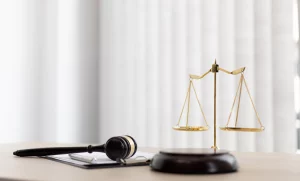Parole Eligibility Attorney in San Luis Obispo, CA
Why Do I Need a Parole Eligibility Attorney in California?
When you have been incarcerated for an extended period and are eligible for parole, you must do everything to ensure that you receive the freedom you are seeking. If your loved one could be up for parole soon, legal help can make a big difference at this stage of the parole process.
At 805 Family Law, we have been helping those convicted of crimes to be released on parole or to be granted a pardon. Our skilled San Luis Obispo CA parole eligibility attorneys will build a strong case for early release based on the facts of your case, based on their knowledge of the law, and based on their experience of the way the parole system works.
We offer quality defense representation and help you fight for your freedom. With time and dedication, you’ll be able to serve out your parole sentence and finally move forward with your life outside of prison.
What is Parole?
 Parole is the discretionary release of an offender, by the parole board, to serve the remainder of a sentence in the community under supervision. It is defined as conditional freedom for a prison inmate. The inmate (called a “parolee”) gets out of prison but must live up to a series of responsibilities. A parolee who doesn’t abide by the rules may risk going back into custody.
The granting of parole is a privilege, not a right. Even an inmate who is innocent of the charges that put him or her in prison cannot expect a successful appeal that will lead to prison release. Parole isn’t something a prisoner automatically receives after a certain period of imprisonment. Under the traditional parole system, parole is a privilege for prisoners who seem capable of reintegrating into society.
A seasoned San Luis Obispo parole eligibility lawyer can help you understand how the parole system works.
Parole is the discretionary release of an offender, by the parole board, to serve the remainder of a sentence in the community under supervision. It is defined as conditional freedom for a prison inmate. The inmate (called a “parolee”) gets out of prison but must live up to a series of responsibilities. A parolee who doesn’t abide by the rules may risk going back into custody.
The granting of parole is a privilege, not a right. Even an inmate who is innocent of the charges that put him or her in prison cannot expect a successful appeal that will lead to prison release. Parole isn’t something a prisoner automatically receives after a certain period of imprisonment. Under the traditional parole system, parole is a privilege for prisoners who seem capable of reintegrating into society.
A seasoned San Luis Obispo parole eligibility lawyer can help you understand how the parole system works. Who is Eligible for Parole?
Not all inmates are qualified to get a conditional release from prison before their sentence term is over. A parole board will consider many factors in their decision including, the criminal’s history, the prisoner’s behavior and accomplishments during their time at the facility, details of the particular crime, and what the offender’s plans upon release. A reliable San Luis Obispo criminal defense lawyer can help determine whether a person is entitled to parole.
Parole eligibility may vary from state to state, but not all states use parole systems. Each jurisdiction is somewhat different in how it handles parole, how state bodies are established to govern parole hearings, and how parole is issued. The parole board takes into consideration many things before ruling on a parole application.
Length of Prison Sentence
Once a person is convicted of a crime, he or she is sentenced to a prison term. There are two types of prison terms: indeterminate and determinate. An indeterminate sentence fixes wide-ranging minimum and maximum lengths of time, while determinate terms are fixed terms of imprisonment. The sentence is indeterminate because the offender’s actual release date is unknown. In most cases, parole boards consider prisoners for parole only after completing a certain portion of their prison sentences such as one-third or one-half of the maximum sentence imposed.
If the maximum sentence length is indeterminate, as with a life sentence, the eligibility dates will be determined based on the following factors:
- the offender’s age
- the type of offense
- the offender’s risk-level designation
State law may also impose a straightforward minimum term that must be served before an offender serving a life sentence is eligible for parole (such as 30 or 40 years). However, it can only be applied to life sentences with the possibility of parole.
Violent or Repeat Offenses
The parole board will also be concerned about what convictions and charges put you behind bars. Factors such as the type of offense, whether it’s the first or a repeat offender, and the length of time between the offenses will be taken into consideration.
The ultimate goal of the board is to ensure that you will no longer impose danger on society if you are released. Parole is also designed to protect society by requiring former offenders to follow certain conditions. The idea is that these conditions will help them succeed and keep them from reoffending.
No one can guarantee if a person has been reformed and will not repeat the same offense in the future. But when it comes to parole, the safety of others is an essential factor. If the parole board accepts the application, a hearing will be scheduled. This will be the opportunity for the inmate to prove that he or she has been rehabilitated and is no longer a danger to society.
Good Time
The conduct of the prisoner while behind bars is one of the factors affecting parole eligibility. In some states, an offender may be able to get an earlier eligibility date as a result of good behavior or progress toward goals. On the other hand, misconduct during imprisonment may lead to a later eligibility date. Qualified inmates can earn an early release from imprisonment based on good time credit. The level of crime you are convicted of and your specific sentence determines how much good time credit you can accrue.


